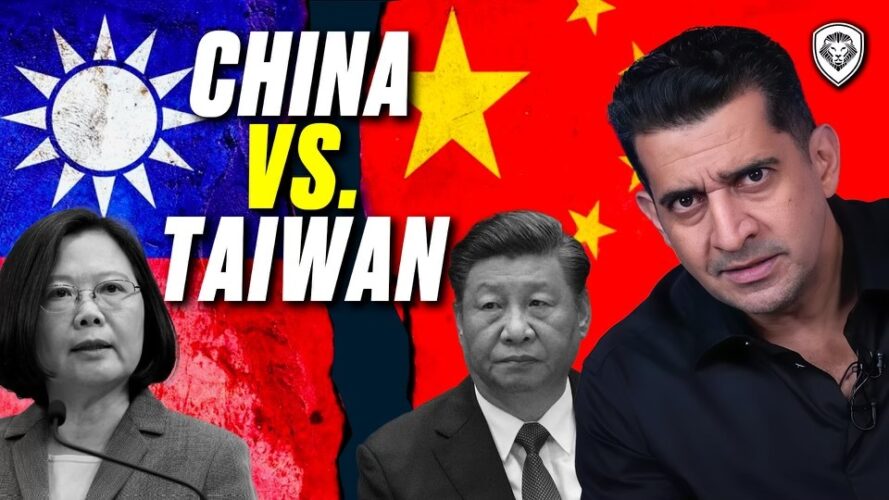Patrick Bet-David explains the volatile situation between China and Taiwan. What would happen if China invaded? Why is China building fake islands right now?
Just as American trade depends on the Panama Canal, and European trade depends on the Suez Canal, Chinese trade depends on the Strait of Malacca, a narrow body of water between the Malay Peninsula and the Indonesian island of Sumatra which connects the South China Sea to the Indian Ocean.
According to an analysis from the Center for Strategic and International Studies (CSIS), the South China Sea represents $1.47 trillion in trade value for China and 39.5 percent of all China’s trade in goods. By comparison, the United States relies on it for only $208 billion and comprises 5.72 percent of its trade.
While China needs access to these points in order to facilitate its economy, all the surrounding nations are allied with the United States. That is why China has been building islands to claim large swaths of the Sea, so that it won’t get trapped if tensions rise. Malaysia, Vietnam and other countries in the region are also building islands and claiming land to counteract China.
Learn the benefits of becoming a Valuetainment Member and subscribe today!
It is also the reason many believe China will likely invade Taiwan eventually, such as a four-star U.S. general and billionaires Elon Musk, Ray Dalio, and Warren Buffett.
China used to own Taiwan, but it lost it during the Chinese Civil War, when the Chinese Communist Party (CCP) defeated the Kuomingtang (KMT), the nationalist forces attempting to defend the Republic of China (ROC). The KMT retreated to Taiwan and broke it off from the mainland, vowing to eventually retake the whole country.
The People’s Republic of China (PRC), the official name for the CCP-led regime still in power over mainland China, views Taiwan as rightfully theirs. In 1979, the U.S. severed ties with Taiwan in order to make a diplomatic overture to China, which was part of its Cold War divide-and-conquer strategy against the Soviet Union. Yet that same year, the U.S. passed the Taiwan Relations Act (TRA) which contained a legal framework for the continuation of unofficial relations between the U.S. and Taiwan. It also committed the U.S. to provide Taiwan with “arms of a defensive character” and states that any effort to determine Taiwan’s future by non-peaceful means would be of “grave concern” to the U.S.
The TRA has allowed the U.S. to remain trade partners with Taiwan, which is highly important for the global flow of goods, especially computer chips.
But Taiwan is even more important for China. As Patrick discussed in a previous video, China relies heavily on foreign production for higher-end microchips.
(RELATED: Semiconductor Chip War: America’s Edge Over China)
In a militaristic match up, China outnumbers Taiwan in every kind of unit except for transport aircrafts, which is what would be needed in an island war. China would have a challenge in a war, as it cannot rely on neighbors to let them make use of their strategic positioning, and because Taiwan has mine-laying ships and can setup oil pipelines at beach entry points that would dump oil into the ocean and set the entry points on fire. Taiwan also has a series of possible scorched-earth tactics and guerrilla warfare plans.
Additionally, China does not have the infrastructure to deploy its entire air fleet into the combat zone. Most of China’s jets cannot make it into the Taiwan airspace due to the distance.
In short, China would love to take Taiwan but the operation would not be as easy as one would assume. It would need significant backup from other nations to win the war, and it is unclear who that would be as Russia has lost “nearly half” of its combat effectiveness because of its war with Ukraine.





















Add comment